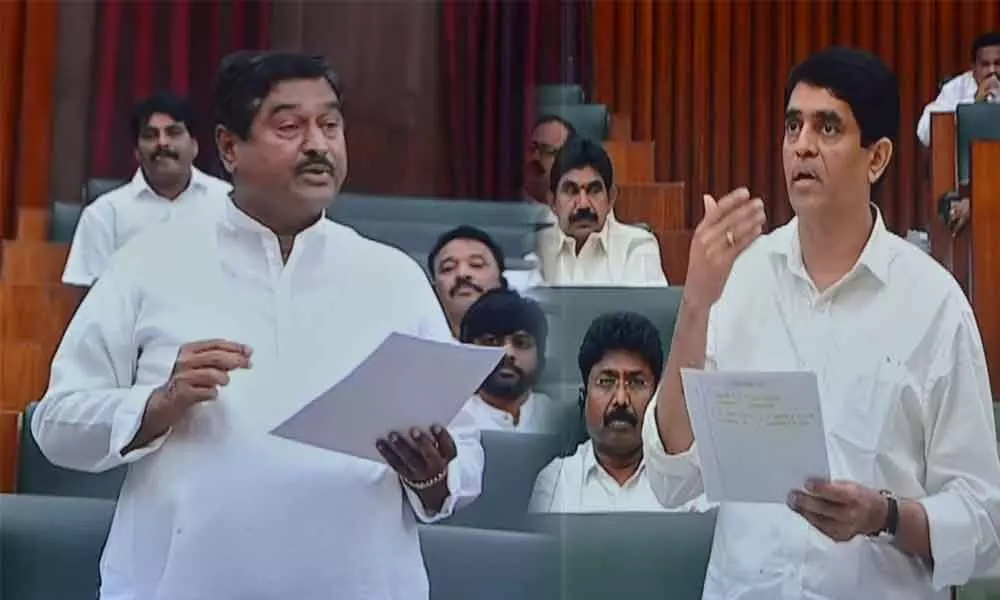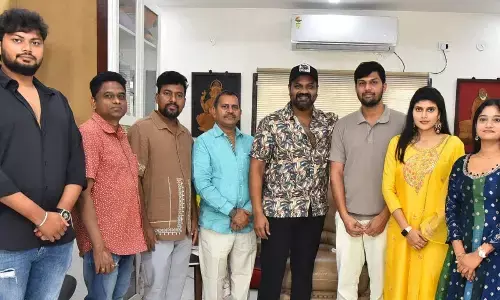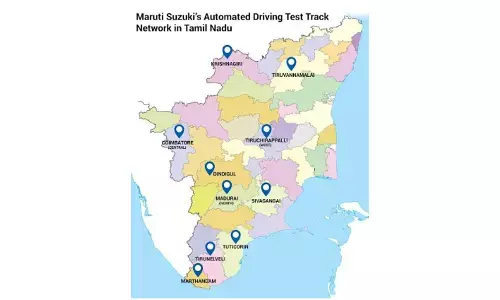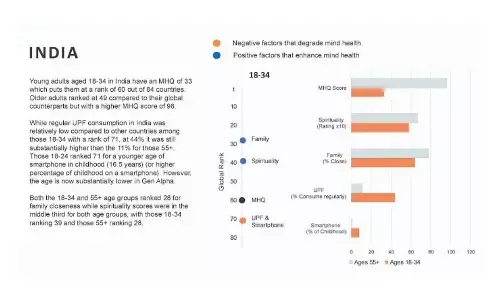YSRCP asserts Assembly's right to make laws

Dharmana Prasada Rao (Left); Buggana Rajendranath Reddy (Right)
- Insist that judiciary has no right to dictate policy matter to the govt
- Chevireddy Bhaskar Reddy while advising the courts not to 'overstep' its purview, calls for replacement of Collegium System for appointments of judges with UPSC-like selection mode besides a system to probe 'judicial misconduct'
Vijayawada: Several ruling YSRCP members in Assembly emphasised the primacy of legislature in deciding policies, including capital of the state. Taking part in the debate on legislative competency, they reminded the separation of powers enshrined in the Constitution.
Initiating the debate on legislative competency on Thursday, Dharmana Prasada Rao said if we cannot make or change policies why do we need elections every five years while finance minister Buggana Rajendernath Reddy said that legislature is supreme and courts cannot interfere in policy matter unless there is a violation of fundamental rights. Chevireddy Bhasker Reddy said that the judiciary should not overstep its purview while K Parthasarathy said the three capitals issue has been dragged into legal tangle by "vested interests" questioning the legislative competence of the elected government.
Widely quoting landmark judgements along with Aristotle to Montesquieu to Ambedkar, they said the doctrine of separation of powers should be adhered to and a mix up of powers of legislature, executive and judiciary would lead to chaos and dictatorship.
Citing Supreme Court judgements about judicial restraint and judicial activism, MLA Dharmana Prasada Rao found fault with the High Court remark that a change in government need not give rise to change in policy and highlighted that it is the people's mandate that has brought in the legislators to make laws which no other domain can do. He strongly asserted that courts can't run the government and judges cannot legislate and further reminded the dictums given by the Supreme Court on earlier occasions, where judicial activism can act as an unguided missile.
Continuing the discussion, MLA Kolusu Parthasarathy came down heavily on opposition leaders who wrongly portrayed the concept of decentralisation and three capitals issue for the sake of political gains by dragging into legal tangles.
The MLA said the previous TDP government had estimated Rs 1 lakh crore for developing basic infrastructure in the capital city and reminded that it could hamper the development in other regions of the state. The concept of decentralisation was proposed to fulfil the aspirations of all three regions, especially to develop Rayalaseema and north Andhra districts that were neglected for decades, he said.
Taking part in the debate, MLA Chevireddy Bhaskar Reddy reminded that every system has to work with in its boundaries without interfering with others. He said the MLAs and MPs have their responsibilities to fulfil the aspirations and promises made to the public.
Pointing at the Collegium System for appointments of judges, he stressed the need to have a selection system like UPSC, besides having a system under the President of India to probe judicial misconduct.
Meanwhile, finance minister Rajendranath Reddy, traced the history of Andhra since it separated from Madras and the sub-regional aspirations that led to bifurcation of two Telugu states with concentration of development in a single city ignoring other places. He said that the government intended to bring a balanced regional development in the state through decentralisation to avoid such differences, following the recommendations made by both Sri Krishna and Sivaramakrishnan Committee reports. He also stated that it was not right for the courts to interfere with the legislature and change the decisions made in the State Assembly, as the legislature is supreme in policy matters.
Assembly Speaker Thammineni Sitaram opined that there should be harmony and mutual respect among all three constitutional organs and added that legislature, executive and judiciary must confine to their domain, without crossing the thin line of separation of powers, which is the spirit of the constitution and that should be continued.











